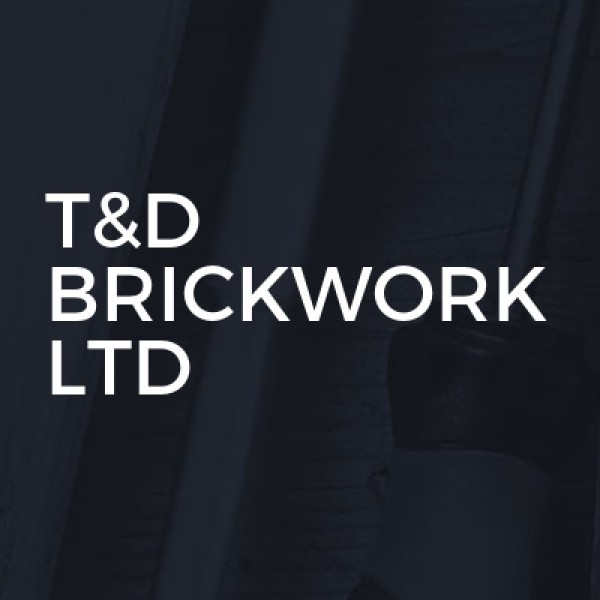Garage Conversions in Beckenham
Search Garage Conversions in places nearby
Understanding Garage Conversions in Beckenham
Garage conversions in Beckenham have become increasingly popular as homeowners seek to maximise their living space without the hassle of moving. With the charm of Beckenham's suburban setting and the convenience of London nearby, it's no wonder that residents are looking to make the most of their existing properties. This article explores the ins and outs of garage conversions, offering insights into the process, benefits, and considerations for those contemplating this home improvement project.
The Appeal of Garage Conversions
Garage conversions offer a unique opportunity to transform underutilised space into functional living areas. Whether you need a home office, an extra bedroom, or a playroom for the kids, converting your garage can provide the solution. In Beckenham, where property prices are on the rise, a garage conversion can also add significant value to your home, making it a wise investment.
Maximising Space
One of the primary reasons homeowners opt for garage conversions is to maximise their living space. With growing families or the need for a dedicated workspace, the extra room can make a world of difference. By converting a garage, you can create a seamless extension of your home without sacrificing garden space or the need for extensive construction.
Cost-Effective Home Improvement
Compared to building an extension or moving to a larger property, garage conversions are relatively cost-effective. They typically require less structural work, and because the basic framework is already in place, the project can be completed more quickly and with less disruption. This makes it an attractive option for those looking to enhance their home on a budget.
Planning and Permissions
Before embarking on a garage conversion in Beckenham, it's essential to understand the planning and permission requirements. While some conversions may fall under permitted development rights, others might require planning permission, especially if you live in a conservation area or if the conversion significantly alters the property's exterior.
Permitted Development Rights
In many cases, garage conversions can be carried out under permitted development rights, which means you won't need to apply for planning permission. However, it's crucial to check with the local council to ensure your project complies with all regulations. Factors such as the size of the conversion and its impact on the surrounding area will be considered.
Building Regulations
Regardless of whether planning permission is required, all garage conversions must comply with building regulations. These regulations ensure that the conversion is safe, energy-efficient, and suitable for habitation. Key areas covered by building regulations include structural integrity, insulation, ventilation, and fire safety.
Designing Your Garage Conversion
The design phase is where you can let your creativity shine. Whether you're aiming for a sleek modern look or a cosy traditional feel, the design of your garage conversion should reflect your personal style and meet your functional needs.
Choosing the Right Layout
When designing your garage conversion, consider how the space will be used. An open-plan layout might be ideal for a home office or studio, while separate rooms could work better for a bedroom or guest suite. Think about the flow of the space and how it will connect with the rest of your home.
Incorporating Natural Light
Garages often lack natural light, so it's important to incorporate windows or skylights into your design. This not only brightens the space but also makes it feel more inviting and comfortable. Consider the orientation of your garage and the best ways to maximise sunlight throughout the day.
Practical Considerations
While the design is crucial, practical considerations are equally important in ensuring a successful garage conversion. From insulation to heating, these elements will impact the comfort and usability of the space.
Insulation and Heating
Proper insulation is essential for maintaining a comfortable temperature in your converted garage. Consider insulating the walls, floor, and ceiling to prevent heat loss. Additionally, think about the best heating solution for the space, whether it's extending your central heating system or installing underfloor heating.
Electrical and Plumbing Needs
Depending on the intended use of your converted garage, you may need to install additional electrical outlets or plumbing. Plan these elements early in the design process to avoid complications later on. Ensure all electrical and plumbing work is carried out by qualified professionals to meet safety standards.
Choosing the Right Professionals
Hiring the right professionals is crucial for a successful garage conversion. From architects to builders, each plays a vital role in bringing your vision to life.
Finding a Reputable Builder
Look for builders with experience in garage conversions and a solid reputation in the Beckenham area. Ask for references and view previous projects to ensure their work meets your standards. A good builder will guide you through the process, from obtaining necessary permissions to completing the final touches.
Working with an Architect
An architect can help you design a space that maximises functionality and aesthetics. They can also assist with navigating planning permissions and building regulations. While hiring an architect may add to the initial cost, their expertise can save you time and money in the long run.
Budgeting for Your Garage Conversion
Creating a realistic budget is essential for any home improvement project. Understanding the costs involved in a garage conversion will help you plan effectively and avoid unexpected expenses.
Estimating Costs
The cost of a garage conversion can vary widely depending on factors such as size, design, and the level of finish. On average, you might expect to pay between £10,000 and £20,000. However, more complex projects with high-end finishes can exceed this range. Obtain multiple quotes from builders to get a clear idea of potential costs.
Considering Additional Expenses
In addition to construction costs, consider other expenses such as planning fees, building regulation charges, and the cost of furnishings and decor. It's wise to set aside a contingency fund to cover any unforeseen costs that may arise during the project.
Enhancing Property Value
A well-executed garage conversion can significantly enhance the value of your property. By adding usable living space, you not only improve your quality of life but also increase your home's market appeal.
Return on Investment
While the initial cost of a garage conversion may seem substantial, the potential return on investment can be considerable. In Beckenham, where property demand is high, a garage conversion can add up to 20% to your home's value, making it a financially sound decision.
Attracting Potential Buyers
If you plan to sell your home in the future, a garage conversion can make your property more attractive to potential buyers. Additional living space is a sought-after feature, and a well-designed conversion can set your home apart in a competitive market.
Common Challenges and Solutions
Like any home improvement project, garage conversions can present challenges. Being aware of potential issues and their solutions can help you navigate the process smoothly.
Dealing with Structural Issues
Older garages may have structural issues that need addressing before conversion. These can include dampness, uneven floors, or inadequate foundations. A thorough inspection by a professional can identify these issues, and your builder can recommend solutions to ensure a safe and stable conversion.
Managing Space Constraints
Garages are often narrow and may have limited headroom, which can pose design challenges. Creative solutions, such as using space-saving furniture or incorporating mezzanine levels, can help maximise the available space. An experienced architect can offer innovative ideas to overcome these constraints.
Environmental Considerations
In today's eco-conscious world, considering the environmental impact of your garage conversion is important. Implementing sustainable practices can enhance the efficiency and eco-friendliness of your project.
Using Sustainable Materials
Opt for sustainable building materials, such as recycled insulation or eco-friendly flooring, to reduce the environmental footprint of your conversion. These materials not only benefit the planet but can also improve the energy efficiency of your home.
Incorporating Energy-Efficient Features
Consider incorporating energy-efficient features, such as LED lighting or solar panels, into your garage conversion. These additions can reduce energy consumption and lower utility bills, making your home more sustainable in the long term.
Legal and Safety Considerations
Ensuring your garage conversion complies with legal and safety standards is crucial for a successful project. This not only protects your investment but also ensures the safety and comfort of your family.
Adhering to Safety Standards
All aspects of your garage conversion, from electrical work to structural modifications, must adhere to safety standards. Hiring qualified professionals and obtaining necessary certifications will ensure your project meets all legal requirements.
Understanding Legal Obligations
Familiarise yourself with any legal obligations related to your garage conversion, such as property covenants or homeowner association rules. Understanding these obligations can prevent legal issues and ensure a smooth project.
Frequently Asked Questions
1. Do I need planning permission for a garage conversion in Beckenham?
In many cases, garage conversions fall under permitted development rights, meaning planning permission isn't required. However, it's essential to check with the local council to confirm this for your specific project.
2. How long does a garage conversion take?
The duration of a garage conversion can vary depending on the complexity of the project. On average, it can take between four to six weeks to complete.
3. Can I convert a detached garage?
Yes, detached garages can be converted, but they may require additional considerations, such as connecting utilities and ensuring adequate insulation.
4. Will a garage conversion add value to my home?
A well-executed garage conversion can significantly increase your home's value, particularly in areas like Beckenham where property demand is high.
5. What are the common uses for a converted garage?
Common uses for converted garages include home offices, additional bedrooms, playrooms, or even home gyms. The choice depends on your needs and lifestyle.
6. How can I ensure my garage conversion is energy-efficient?
Incorporating insulation, energy-efficient windows, and sustainable materials can enhance the energy efficiency of your garage conversion.
Garage conversions in Beckenham offer a practical and cost-effective way to enhance your living space and add value to your home. By understanding the process, planning carefully, and working with experienced professionals, you can create a beautiful and functional space that meets your needs and complements your lifestyle.















